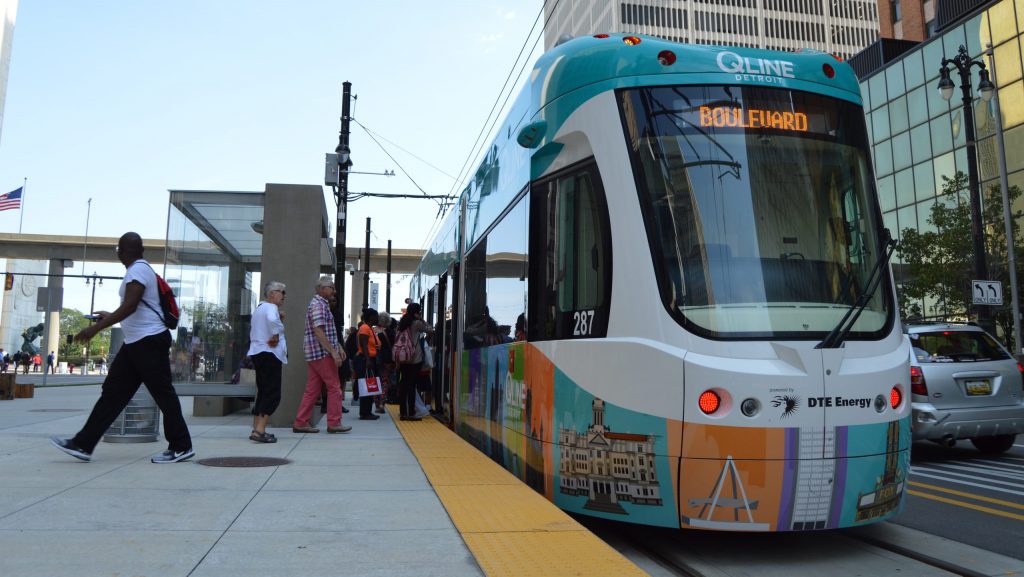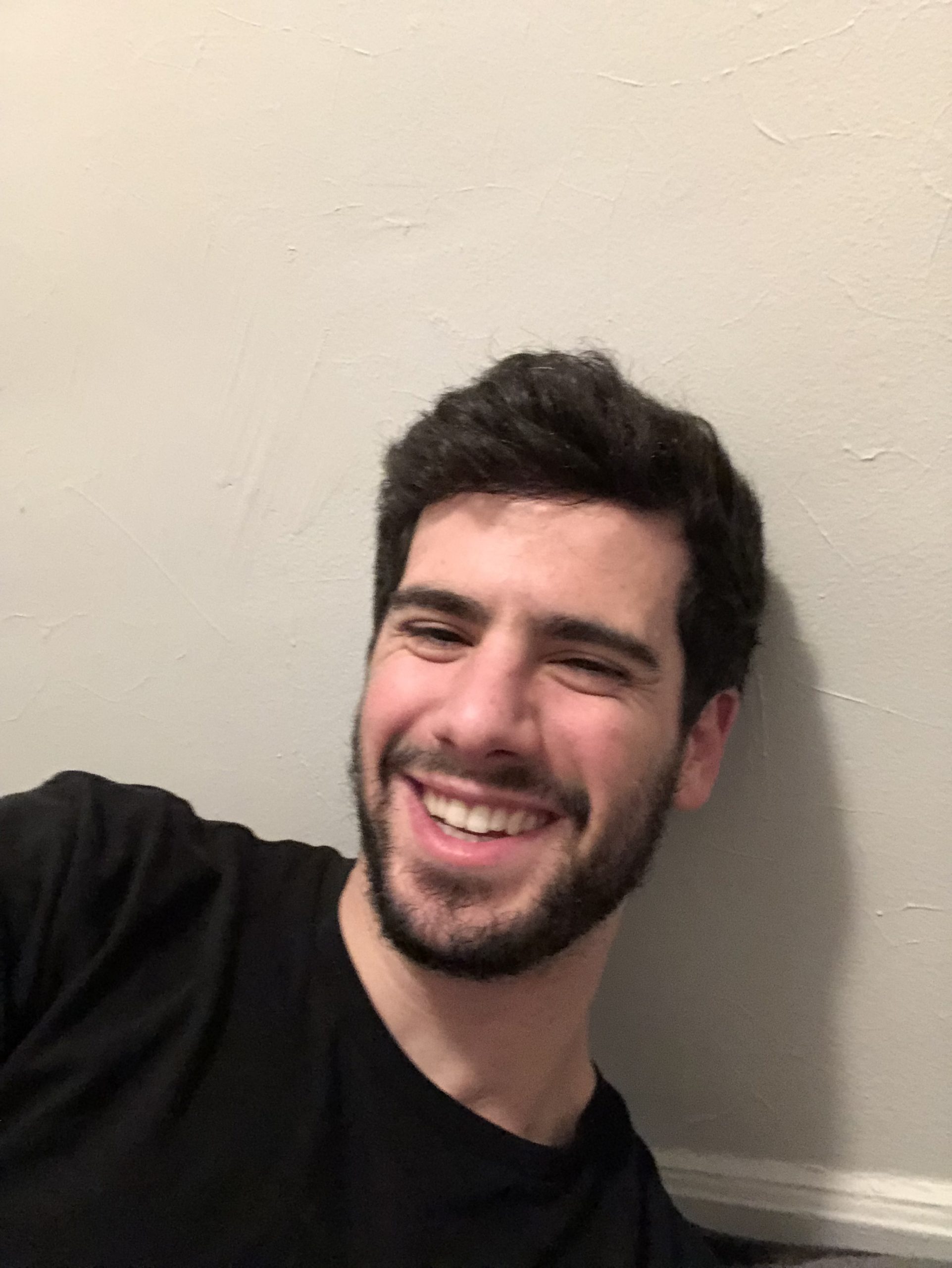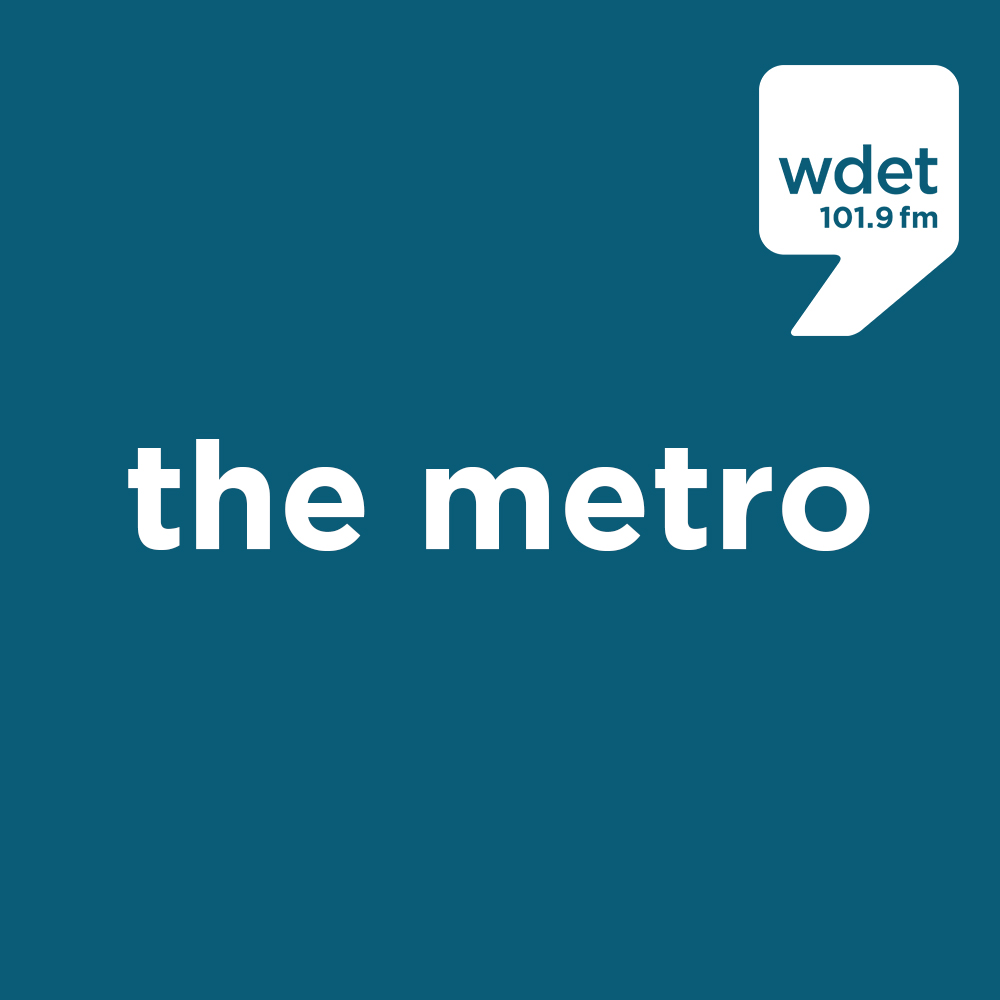The Metro: A look at public transit history and where it’s headed in Detroit
Sam Corey, Robyn Vincent, The Metro March 26, 2025Today on The Metro, we’re looking at the history and future of public transit in the Motor City.

Riders board and depart Detroit's light rail, the Q-Line, at a stop downtown.
For a good chunk of the 20th century, railcars took Detroiters from point A to point B.
Along Gratiot and Grand River, people didn’t even own cars. They were too expensive, but there was also no reason to because streetcars crisscrossed Detroit and even went out to places like Port Huron and Ann Arbor.
In 2025, new cars are really expensive, car insurance is very costly, and public transit is worse today than it was 100 years ago. Today on The Metro, we’re looking at the history and future of public transit in the Motor City.
Guests:
- Robert Pfaff: A professor of community and regional planning at Iowa State University. He wrote his dissertation at the University of Michigan about the history of Detroit’s streetcar system.
- Robert Cramer: Director of Detroit’s Department of Transportation.
We also asked listeners:
“What would convince you to take public transit in Detroit? How fast, how convenient, do the buses or the Q-Line — or some kind of rail system — need to be for you to take it?”
Christina in Detroit said: “I believe in the last four years (public transit is) getting better. Is it the greatest thing in the world, the greatest thing since, like sliced bread? No. But I also think that there is strides, especially with Kramer involved, coming from Detroit People Mover to D-DOT tells me there’s gonna be a lot of changes.”
Use the media player above to hear the full conversation.
More headlines from The Metro on March 26, 2025:
- Mayor Mike Duggan gave his last State of City address last night. He touted his accomplishments and his work to build coalitions. We talked to WDET Senior News Editor Quinn Klinefelter about the speech.
- The Department of Education does a lot of things to support college students. One of its primary functions WAS to administer federal student loans and payment plans for college students and graduates, pograms that help make college accessible for students of all income levels. Michelle Zampini is the Senior Director of College Affordability for The Institute of College Access & Success. She joins the show to talk about what student loans and repayments could look like under the Trump Administration.
- WDET’s Ryan Patrick Hooper talked with Detroit Symphony Orchestra president Erik Ronmark about the release of “Blues Symphony” via Third Man Records. This interview first aired on In The Groove.
Listen to The Metro weekdays from 10 a.m. to noon ET on 101.9 FM and streaming on-demand.
Trusted, accurate, up-to-date.
WDET strives to make our journalism accessible to everyone. As a public media institution, we maintain our journalistic integrity through independent support from readers like you. If you value WDET as your source of news, music and conversation, please make a gift today. Donate today »Authors
-
 Sam Corey is a producer for 101.9 WDET, which includes finding and preparing interesting stories for the daily news, arts and culture program, The Metro. Sam joined WDET after a year and a half at The Union, a small newspaper in California, and stints at a variety of local Michigan outlets, including WUOM and the Metro Times. He is a graduate of the University of Michigan and the University of Chicago.
Sam Corey is a producer for 101.9 WDET, which includes finding and preparing interesting stories for the daily news, arts and culture program, The Metro. Sam joined WDET after a year and a half at The Union, a small newspaper in California, and stints at a variety of local Michigan outlets, including WUOM and the Metro Times. He is a graduate of the University of Michigan and the University of Chicago. -
 Robyn Vincent is the co-host of The Metro on WDET. She is an award-winning journalist, a lifelong listener of WDET, and a graduate of Wayne State University, where she studied journalism. Before returning home to Detroit, she was a reporter, producer, editor, and executive producer for NPR stations in the Mountain West, including her favorite Western station, KUNC. She received a national fellowship from Investigative Reporters and Editors for her investigative work that probed the unchecked power of sheriffs in Colorado. She was also the editor-in-chief of an alternative weekly newspaper in Wyoming, leading the paper to win its first national award for a series she directed tracing one reporter’s experience living and working with Syrian refugees.
Robyn Vincent is the co-host of The Metro on WDET. She is an award-winning journalist, a lifelong listener of WDET, and a graduate of Wayne State University, where she studied journalism. Before returning home to Detroit, she was a reporter, producer, editor, and executive producer for NPR stations in the Mountain West, including her favorite Western station, KUNC. She received a national fellowship from Investigative Reporters and Editors for her investigative work that probed the unchecked power of sheriffs in Colorado. She was also the editor-in-chief of an alternative weekly newspaper in Wyoming, leading the paper to win its first national award for a series she directed tracing one reporter’s experience living and working with Syrian refugees. -

